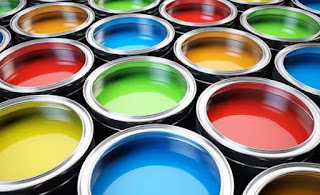Paint manufacturing is a complex process that requires stringent quality control to produce consistent, high-quality products. One of the critical aspects of paint production is filtration. Traditional filtration methods often face challenges such as frequent clogging, downtime for cleaning, and increased maintenance costs. However, advancements in technology have given rise to a game-changing solution: self-cleaning filters(also known as auto-strainer filters or automatic self-cleaning filters).
In this blog, we will explore how self-cleaning filters are revolutionizing the paint filtration process, offering efficiency, cost-effectiveness, and improved product quality.
The Traditional Filtration Challenge:
In the traditional paint manufacturing process, filters play a vital role in removing impurities and ensuring the paint's color, texture, and finish meet strict standards. The paint contains various particles, such as pigments, fillers, and additives, which can lead to filter clogging. As the filtration process continues, the accumulation of these particles reduces flow rates, necessitating frequent filter replacement or manual cleaning.
Efficiency through Self-Cleaning Technology:
Self-cleaning strainers are designed to tackle the challenges faced by conventional filters. They use advanced technology to automate the cleaning process, significantly reducing downtime and improving overall efficiency. These filters continuously monitor the pressure drop across the filter medium, indicating the extent of contamination. When the pressure drop reaches a predefined level, the self-cleaning mechanism is triggered.
Self-cleaning filter working principle in paints filtration processing
A) Backwashing: One common self-cleaning method is backwashing. The filter reverses the flow direction, dislodging the accumulated particles and flushing them out. This process can be fully automated and doesn't require any interruption to the paint production process.
B) Automatic Scraping: Another approach is the use of automatic scrapers or brushes that physically remove debris from the filter surface. The scraped particles are then discharged from the filter, ensuring it remains clear of blockages.
C) Ultrasonic Cleaning: Some self-cleaning filters employ ultrasonic waves to clean the filter media. These high-frequency sound waves create vibrations that dislodge particles and prevent them from adhering to the filter's surface.
Benefits of auto-type self-cleaning filters in paints filtration
A) Reduced Downtime: Self-cleaning filters drastically reduce downtime since there is no need for manual cleaning or frequent replacement. This ensures continuous and uninterrupted paint production.
B) Cost-Effectiveness: While self-cleaning strainers may have a higher upfront cost, the long-term benefits outweigh the initial investment. Reduced maintenance, lower labor costs, and extended filter life result in significant cost savings.
C) Enhanced Product Quality: Automatic self-cleaning filters maintain consistent filtration efficiency, ensuring that paint quality remains uniform throughout production runs. The elimination of filter-related defects contributes to a higher-quality end product.
Conclusion
Self-cleaning filters have revolutionized the paint filtration process, offering efficient, cost-effective, and high-quality solutions for paint manufacturers. We can custom and design various types of auto self-cleaning filters for industrial filtration systems. E-mail: sales@yubofilter.com




评论
发表评论